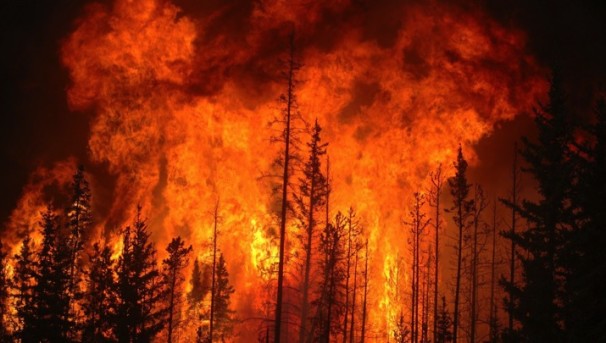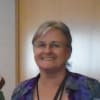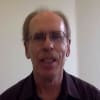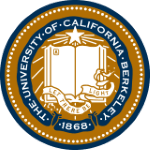FUEGO: Early Detection and Management of Wild Fires
This project has ended, but you can still support amazing Berkeley initiatives by visiting give.berkeley.edu. Your continued support of our students, faculty and staff will ensure that Berkeley remains the #1 public university. Go Bears!
WILDFIRE EMERGENCY IN NORTHERN CALIFORNIA - YOUR CONTRIBUTION WILL BE PUT TO IMMEDIATE USE!
Our Project has been featured in:

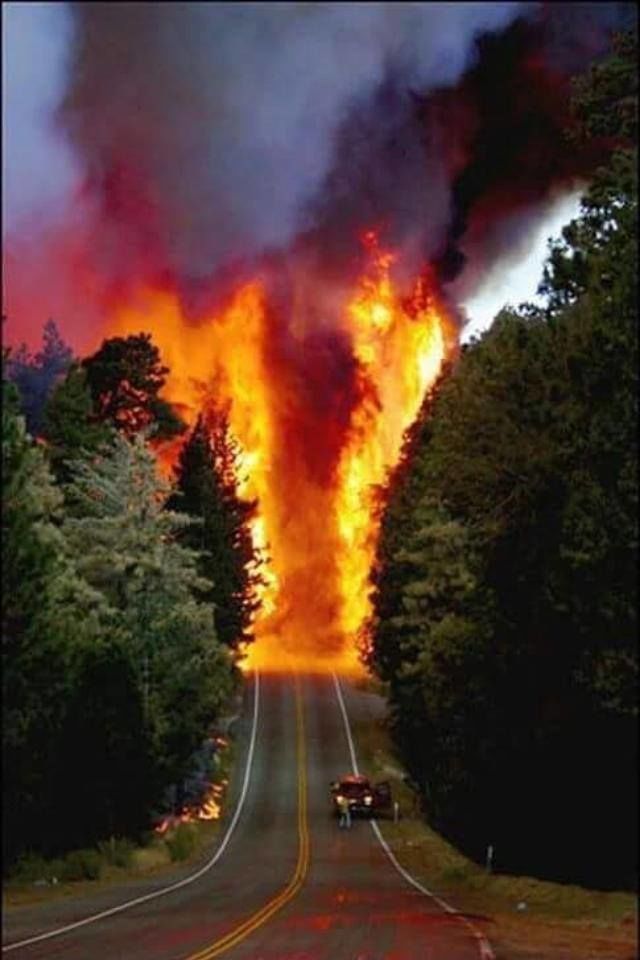
Fires, if left uncontrolled, will grow rapidly, destroying nearly anything in their path. In the U.S., we spend billions of dollars a year on fire fighting — California alone spends an average of $400 million dollars annually on fire suppression. But the true cost to Californians is much higher; fires are responsible for harming the atmosphere and ecology, destroying property, and in some cases, causing death to those people unfortunate enough to get in their way.
FUEGO, the Fire Urgency Estimator from Geosynchronous Orbit, works to alleviate the problem by using modern technology solutions to discover fires while they are still small enough to control.
FUEGO was developed by a team of astrophysicists and engineers at the U.C. Berkeley Space Sciences Lab and the Lawrence Berkeley National Lab, home of some of the most effective sensor and software systems in the world. The system has a long history; after a firestorm swept through the Oakland hills in 1991, killing 25 people, injuring 150 others, and destroying almost 3,000 homes, Berkeley physicist Carl Pennypacker and colleagues studied the practicality of a satellite for wildfire detection.
Ultimately, they decided that the cost of the satellite cost was prohibitive.
But now, virtually every part of the satellite system is many times less expensive. In fact, in 2015, the same exact satellite needed for the tool can be built for 1/10th of the price—or even less, if purchased in quantity. In addition, Unmanned Aerial Vehicles (known commonly as drones), piloted airplanes, and other sensor platforms have become much less expensive and more accessible to the Berkeley team. Ultimately, we anticipate FUEGO working by gathering data from several different altitudes.We are collaborating with several groups with expertise in this area, including the U.C. San Diego team that built the WiFIRE system. This system is a cyber infrastructure with powerful data ingestion, simulation, and communications tools that could accept FUEGO data, and help fire incident teams make reasonable judgements about the most effective use of resources such as aerial tankers or fire-fighters on the ground. And until the FUEGO satellite is launched, we will utilize a powerful system of alerts from other satellites from around the globe to which we have recently gained access. We’ve also put together a strong team here at Berkeley. Besides our astrophysicists, we have experts in natural resource management, Graphical Information Systems (GIS), and airborne image acquisition and data management.

This is a pressing issue: the drought has left California at a greater risk for fires than ever before. The FUEGO team is poised to help, and soon. The first stages of the project will be carefully controlled experiments, where we acquire data and test our systems using airborne infrared cameras either on airplanes or drones. But we need some help: we’re asking you to contribute funds to get these system tests up and running, specifically, $20,000 for the largest and best infrared data acquisition of a fire in progress. Once we prove out the systems, we will share our results with the fire agencies and then become part of their working resources— helping them stop fires right when they start, and make California a safer place to live.
Learn more at FUEGO.ssl.berkeley.edu

$25
Shout Out Certificate
You'll receive a special thank you on our facebook page.
$50
Name on a Plane
Your name will be written on the side of a FUEGO Airplane or Drones that are making these flights.
$75
FUEGO Certificate
FUEGO Stop Fires Fast Certificate, delivered electronically.
$100
Contributor Status
Your name will appear on the FUEGO web page as a contributor.
$250
Fire Images Access
You'll get access to the FUEGO Fire Images (when legal) and a web-based tutorial on what they mean.
$500
Coffee with a Cosmologist
You are invited to have Coffee with an LBL Cosmologist and find out the beginning of the Universe, and aspects of how we came to be here!
$1,000
Lunch with an Astrophysicist
Participate in a great learning experience: Lunch with Carl Pennypacker, renowned astrophysicist and innovator for FUEGO
$1,500
Drones in Action
You are invited to observe FUEGO Data in action, from a FUEGO Data-Central Data Cave
$5,000
Lunch with Richard A. Muller
Richard A. Muller is a prize-winning UCB faculty member, having helped develop ideas that have led to two Nobel Prizes (muller.lbl.gov). His work on climate change has received wide-spread attention and He supports FUEGO!
$5,000
Lunch with Alex Filippenko
Alex Filippenko is a prize-winning UCB astronomer (astro.berkeley.edu/~alex) who was a member of the teams that discovered Dark Energy. He has published textbooks on astronomy, has been officially recognized for his teaching and is regarded as one of the most popular and lecturers at UCB.
$10,000
Ride in "Fireball" airplane
Be a volunteer "trainee" member of Fireball's intelligence gathering crew. (Work two fires - ride in aircraft if safety and general conditions permit.) Tim Ball, of Fireball

